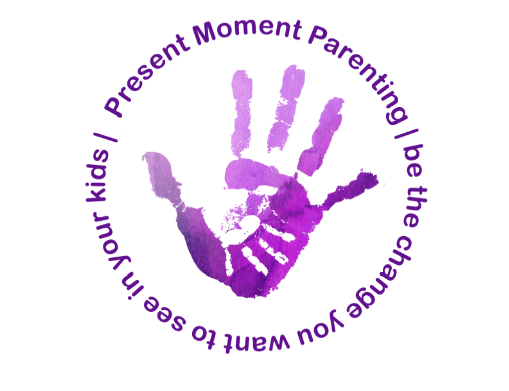
Yes, I’ve seen your child’s schedule. From extended school hours to sports and music and ballet and third languages and extra maths and life skills workshops and homework and check ups and OT and physio and play therapy and play dates. It’s no wonder that you feel like mom’s taxi, but your sacrifices are nothing when it means that your child will be one step ahead, will have the added advantage, will be on the upward trajectory to success. Right?!
Are you sure that that is what you’re really doing? Let’s take a look…
Are you sure that that is what you’re really doing? Let’s take a look…
For success, kids need more work and less play.
Is this true? I know you’ve had it drilled into you that success is the result of work work work, but have you read any of the research into the importance of play for success? I would suggest starting with Dr. David Whitebread’s research paper on The Importance of Play where he looks at how “Playfulness is strongly related to cognitive development and emotional well-being.” How much do you actually know about childhood growth and development? About how children’s minds work and how new neural pathways are created? Is it possible that you would prefer your child to work smarter and not harder? And is life all about hard work, or is it also about personal fulfillment, good relationships, love and enjoyment? If you’re still not sure, ask yourself this question: “When you’re lying on your deathbed, would you like to be surrounded by cash, possessions, awards and achievements, or people that you love and who love you and in whose lives you have made a difference?” What is success anyway??
How do you feel or what happens when you believe this? Do you find yourself getting stressed out because there’s maths homework undone and your child is ‘wasting time’ making mud pies in the spring sunshine? Do you pin your kids down and force them to read about Floppy and Biff and the gang when they really want to be building a Lego castle? Do you find both yourself and your kids too exhausted from your hectic schedule to plan any fun family time on the weekends? Do you resort to punishments and rewards just to get your kids to music classes without a fight? Does life seem like an endless treadmill? A non-stop function that needs to be planned and diarized? Is there any space in your or your children’s lives for fun and spontaneity?
Who would you be in the same situation without this thought? Let go of your work paradigm for just one moment and imagine a life without it – a life where kids spend hours outdoors riding bikes, swimming, making up games, searching for bugs, tinkering with bits of scrap and blowing things up with concoctions made from things you didn’t even know you had in the cupboard. Imagine children, tired and happy from play, falling into bed early without a fight. Imagine your children using their imaginations to create worlds and games, using their growing social skills to solve problems and end fights, using their freedom to explore their talents and gifts. Imagine afternoons where they amuse themselves (learning responsibility and creativity) while you focus on yourself and un-suppressing your own talents and dreams. Imagine long, slow weekends where your relaxed family gets to know each other and enjoy each other’s company.
Sound like something possibly worth considering?
Let’s turn this all around…
1. For success, kids need more play and less work.
It is through play that we develop parts of the brain and neural connections needed to understand concepts like mathematics later on. Every different type of play develops a different area of cognition and emotional development, ALL of which are essential for later success in life. Dr. Whitebread has found in his research, that “Children suffering from severe play deprivation suffer abnormalities in neurological development”. Play is not an idle waste of time; it is an essential part of our children’s well being. Even the United Nations makes provision for play as an essential element of development in their Declaration of the Rights of The Child. Scheduled activities and adult-directed sports and games are not the same thing as play. Children need time to develop their own games, rules and imaginations. If you look at the great minds in any field, from the Dalai Lama to Richard Branson, you will find the same spirit of playfulness still there even in their adult years. We’re also in desperate need of a redefinition of success. Not everyone will be a millionaire, and neither should they. For some of us success is making a difference in the life of another human being, for someone else it may be raising a happy family, for another, travelling the world. Success should be based not on how many skills we’ve mastered or the balance in our bank accounts, but on how well we have explored our own personal gifts and talents, on how WE feel about our lives and experiences, and on how well we have loved.
2. For success, parents need more work and less play.
What if you threw yourself wholeheartedly into something that you feel passionately about? What if you loved your work and couldn’t wait for each new day to start so that you could get back to doing what you loved? I see too many parents sacrificing their dreams to cart kids off to extra murals and holiday programs instead of embracing their own gifts and talents in the hopes that this will bring their kids success. I’ll say it again – kids learn from who you are, not what you say. You cannot teach success unless you’re living it. Find out what moves you, find out where you can make a difference, find out what you have to offer the world. Let your children see you loving your work, embracing the challenges, celebrating your achievements. That is how they learn work ethic. Parents who work in jobs that they hate because they’re too afraid to embrace their calling, end up spending too much time “playing” – watching TV, drinking, gambling, staring at the ceiling. Stop and consider what your kids are learning from your life. Let your work become your play instead of play being purely escapism. If you’re stuck with this, give me a call. Following your calling is absolutely within your reach and I can help you to find your path again.
3. For work and play, kids need more success
For your children to one day have a well-balanced life where they are empowered in all areas of their lives, they need opportunities for success in their early years. This is what gives them the self-confidence and independence to try new things, to solve difficult situations and to reassess as they go along. The easiest place for children to experience this is in their play. Unstructured play allows kids to try out different ways of being, to embrace all aspects of themselves and their personalities, to solve problems and face challenges, to push their own boundaries and create their own safety. Play is the arena for figuring out who you want to be and what you are capable of. Too often we push kids into academic areas that they are not quite ready to tackle, and this dampens their sense of self-worth and self-mastery. Play is where these dilemmas get worked out and worked through so that kids can come back to equilibrium. If you take this away from them now, they will have years of therapy later trying to figure out why they are not successful!
It is time to slow down. Knock off some of those extra lessons, kick back a bit in the afternoons, find a new rhythm. All children have the RIGHT to play, and far from being a bad parent by not exposing your child to the best tutors and additional classes, you are in fact giving them the very foundations for success in later life. And you all get to enjoy the journey!
(This is the fourth article in a series on Parenting Myths. Read the first three here or join my mailing list on the right). And feel free to leave your comments and questions below!
Is this true? I know you’ve had it drilled into you that success is the result of work work work, but have you read any of the research into the importance of play for success? I would suggest starting with Dr. David Whitebread’s research paper on The Importance of Play where he looks at how “Playfulness is strongly related to cognitive development and emotional well-being.” How much do you actually know about childhood growth and development? About how children’s minds work and how new neural pathways are created? Is it possible that you would prefer your child to work smarter and not harder? And is life all about hard work, or is it also about personal fulfillment, good relationships, love and enjoyment? If you’re still not sure, ask yourself this question: “When you’re lying on your deathbed, would you like to be surrounded by cash, possessions, awards and achievements, or people that you love and who love you and in whose lives you have made a difference?” What is success anyway??
How do you feel or what happens when you believe this? Do you find yourself getting stressed out because there’s maths homework undone and your child is ‘wasting time’ making mud pies in the spring sunshine? Do you pin your kids down and force them to read about Floppy and Biff and the gang when they really want to be building a Lego castle? Do you find both yourself and your kids too exhausted from your hectic schedule to plan any fun family time on the weekends? Do you resort to punishments and rewards just to get your kids to music classes without a fight? Does life seem like an endless treadmill? A non-stop function that needs to be planned and diarized? Is there any space in your or your children’s lives for fun and spontaneity?
Who would you be in the same situation without this thought? Let go of your work paradigm for just one moment and imagine a life without it – a life where kids spend hours outdoors riding bikes, swimming, making up games, searching for bugs, tinkering with bits of scrap and blowing things up with concoctions made from things you didn’t even know you had in the cupboard. Imagine children, tired and happy from play, falling into bed early without a fight. Imagine your children using their imaginations to create worlds and games, using their growing social skills to solve problems and end fights, using their freedom to explore their talents and gifts. Imagine afternoons where they amuse themselves (learning responsibility and creativity) while you focus on yourself and un-suppressing your own talents and dreams. Imagine long, slow weekends where your relaxed family gets to know each other and enjoy each other’s company.
Sound like something possibly worth considering?
Let’s turn this all around…
1. For success, kids need more play and less work.
It is through play that we develop parts of the brain and neural connections needed to understand concepts like mathematics later on. Every different type of play develops a different area of cognition and emotional development, ALL of which are essential for later success in life. Dr. Whitebread has found in his research, that “Children suffering from severe play deprivation suffer abnormalities in neurological development”. Play is not an idle waste of time; it is an essential part of our children’s well being. Even the United Nations makes provision for play as an essential element of development in their Declaration of the Rights of The Child. Scheduled activities and adult-directed sports and games are not the same thing as play. Children need time to develop their own games, rules and imaginations. If you look at the great minds in any field, from the Dalai Lama to Richard Branson, you will find the same spirit of playfulness still there even in their adult years. We’re also in desperate need of a redefinition of success. Not everyone will be a millionaire, and neither should they. For some of us success is making a difference in the life of another human being, for someone else it may be raising a happy family, for another, travelling the world. Success should be based not on how many skills we’ve mastered or the balance in our bank accounts, but on how well we have explored our own personal gifts and talents, on how WE feel about our lives and experiences, and on how well we have loved.
2. For success, parents need more work and less play.
What if you threw yourself wholeheartedly into something that you feel passionately about? What if you loved your work and couldn’t wait for each new day to start so that you could get back to doing what you loved? I see too many parents sacrificing their dreams to cart kids off to extra murals and holiday programs instead of embracing their own gifts and talents in the hopes that this will bring their kids success. I’ll say it again – kids learn from who you are, not what you say. You cannot teach success unless you’re living it. Find out what moves you, find out where you can make a difference, find out what you have to offer the world. Let your children see you loving your work, embracing the challenges, celebrating your achievements. That is how they learn work ethic. Parents who work in jobs that they hate because they’re too afraid to embrace their calling, end up spending too much time “playing” – watching TV, drinking, gambling, staring at the ceiling. Stop and consider what your kids are learning from your life. Let your work become your play instead of play being purely escapism. If you’re stuck with this, give me a call. Following your calling is absolutely within your reach and I can help you to find your path again.
3. For work and play, kids need more success
For your children to one day have a well-balanced life where they are empowered in all areas of their lives, they need opportunities for success in their early years. This is what gives them the self-confidence and independence to try new things, to solve difficult situations and to reassess as they go along. The easiest place for children to experience this is in their play. Unstructured play allows kids to try out different ways of being, to embrace all aspects of themselves and their personalities, to solve problems and face challenges, to push their own boundaries and create their own safety. Play is the arena for figuring out who you want to be and what you are capable of. Too often we push kids into academic areas that they are not quite ready to tackle, and this dampens their sense of self-worth and self-mastery. Play is where these dilemmas get worked out and worked through so that kids can come back to equilibrium. If you take this away from them now, they will have years of therapy later trying to figure out why they are not successful!
It is time to slow down. Knock off some of those extra lessons, kick back a bit in the afternoons, find a new rhythm. All children have the RIGHT to play, and far from being a bad parent by not exposing your child to the best tutors and additional classes, you are in fact giving them the very foundations for success in later life. And you all get to enjoy the journey!
(This is the fourth article in a series on Parenting Myths. Read the first three here or join my mailing list on the right). And feel free to leave your comments and questions below!







 RSS Feed
RSS Feed